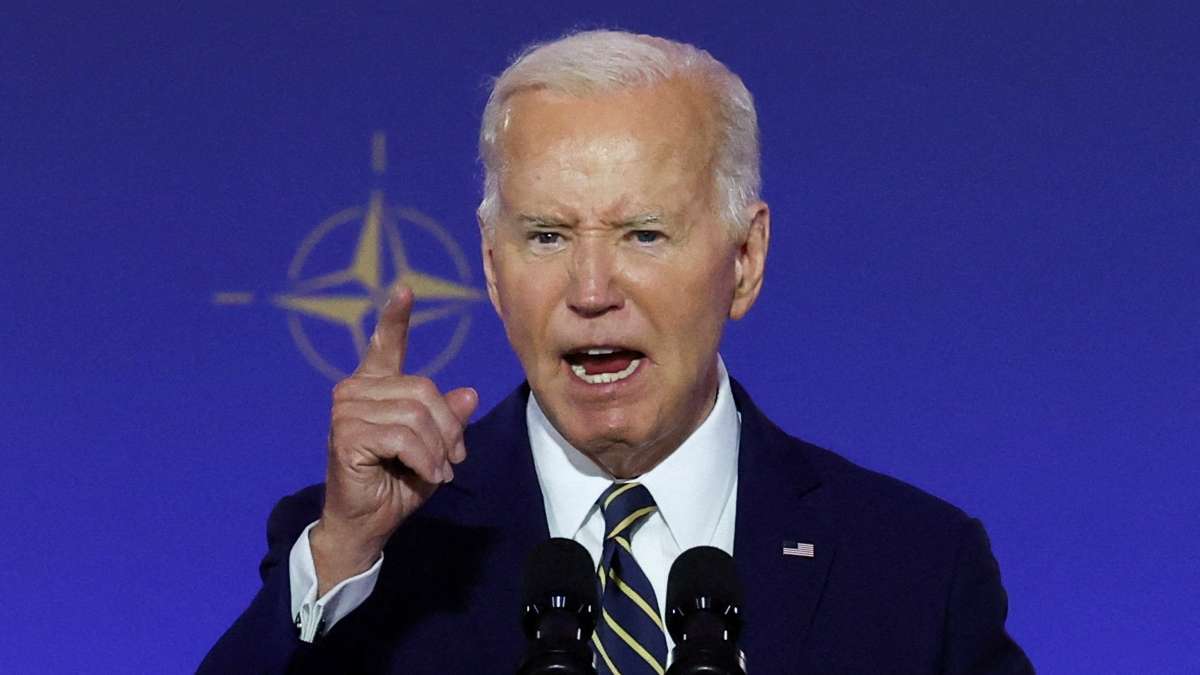NATO’s Role under Biden’s Presidency

Biden nato – Under President Biden’s leadership, NATO has undergone significant changes and developments. The alliance has refocused its priorities, strengthened its collective defense capabilities, and played a more active role in addressing global challenges. Biden’s presidency has marked a renewed commitment to NATO and a recognition of its vital role in maintaining Euro-Atlantic security.
Renewed Commitment to Collective Defense, Biden nato
Biden has emphasized the importance of collective defense as the cornerstone of NATO. He has increased US military spending on NATO and called for other member states to do the same. Biden has also strengthened NATO’s military capabilities by deploying additional troops to Europe and conducting joint exercises.
Focus on Global Challenges
Under Biden, NATO has expanded its focus beyond traditional security threats to include global challenges such as climate change, terrorism, and cyber warfare. The alliance has adopted a new Strategic Concept that Artikels its priorities for the coming years, including addressing these non-traditional threats.
Strengthening Partnerships
Biden has prioritized strengthening NATO’s partnerships with other countries and organizations. He has met with leaders from the Asia-Pacific region, the Middle East, and Africa to discuss common security challenges. Biden has also worked to improve NATO’s relationship with the European Union.
The Future of NATO under Biden’s Administration: Biden Nato

NATO is likely to continue playing a vital role in global security under the Biden administration. Biden has pledged to strengthen NATO and has already taken steps to do so, such as increasing US troop levels in Europe and participating in NATO exercises. NATO is also likely to face a number of challenges in the coming years, including the rise of China, the ongoing conflict in Ukraine, and the threat of terrorism. Biden’s policies and initiatives will likely have a significant impact on NATO’s long-term future.
Key Opportunities
There are a number of key opportunities for NATO under Biden’s leadership. First, NATO can play a role in deterring and countering the rise of China. China is a major economic and military power, and its growing influence in the Asia-Pacific region is a concern for the United States and its allies. NATO can help to deter Chinese aggression by increasing its presence in the region and by working with partners in the Asia-Pacific.
Second, NATO can play a role in resolving the ongoing conflict in Ukraine. Russia’s annexation of Crimea and its support for separatists in eastern Ukraine have created a major security crisis in Europe. NATO can help to resolve the conflict by providing military support to Ukraine and by working with Russia to find a diplomatic solution.
Third, NATO can play a role in combating terrorism. Terrorism remains a major threat to the United States and its allies. NATO can help to combat terrorism by sharing intelligence, providing training and equipment to partner countries, and conducting counterterrorism operations.
Key Challenges
There are also a number of key challenges that NATO will face in the coming years. First, NATO must adapt to the changing nature of warfare. The rise of new technologies, such as artificial intelligence and cyber warfare, is changing the way that wars are fought. NATO must invest in new technologies and develop new strategies to meet these challenges.
Second, NATO must deal with the rise of populism and nationalism. Populist and nationalist movements are gaining strength in many NATO countries. These movements are often critical of NATO and seek to reduce their countries’ involvement in the alliance. NATO must find ways to address the concerns of these movements and to maintain public support for the alliance.
Third, NATO must deal with the threat of climate change. Climate change is a major threat to global security. It can lead to conflict over resources, displacement of populations, and increased instability. NATO must work with its partners to address the challenges of climate change and to mitigate its impact on security.
Biden’s address to NATO allies in the historic Mellon Auditorium underscored the enduring importance of transatlantic cooperation. The grandeur of the venue echoed the weight of the moment, as Biden rallied the alliance to confront common threats. From the soaring columns to the intricate ceiling murals, the Mellon Auditorium provided a fitting backdrop for Biden’s message of unity and resolve.
Biden’s strong support for NATO has been evident in his administration’s efforts to strengthen the alliance. The recent NATO summit in Washington, D.C. ( nato summit washington dc ) further solidified this commitment, with Biden playing a key role in shaping the agenda and outcomes.
The summit’s focus on collective security, deterrence, and defense capabilities underscored Biden’s determination to uphold NATO’s mission and ensure its continued relevance in a rapidly changing global landscape.